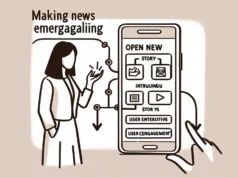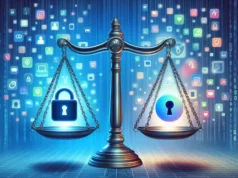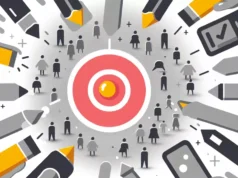In a converging world where information is disseminated at an unprecedented rate, agruably, the line between the real and the fake has become blurred, even irrecognizable. This disconcerting labyrinth of misinformation is especially palpable in the realm of technology. Struck at the core of its ethos, the tech industry has found itself in the midst of an all-out war. Armed with powerful algorithms and cutting-edge AI, its soldiers have embarked on an indomitable fact-checking frenzy, hoping to reconquista the trust of its users while upkeeping and promoting the spread of reliable information.
Recent years have been marked by a surge in technology’s role within the fabric of our daily lives. From our smartphones to our cars, not only are we constantly connected, but we are also consistently fed with an abundance of information. Yet, with this advance comes the pressing concern: how much of this information is factual and trustworthy?
In response to this, the tech industry, realizing the enormity of its responsibility, has harnessed its resources, dedicating them to the cause. Leading tech giants like Google, Facebook, and Twitter have devised sophisticated fact-checking systems using the spearhead of AI technology.
Google, pioneering the fight, in 2016 introduced its Fact Check tool aiming to filter out misinformation. It has since then continuously updated and expanded this functionality. Google News, for instance, now features a “Full Coverage” option that presents users with a comprehensive view of the same story from various sources, thereby providing a multifaceted viewpoint. Moreover, the search engine routinely displays fact-checking labels and links to accredited fact-checking sites beside search results found potentially misleading.
Similarly, Facebook marked its war against misinformation by launching its fact-checking program in 2016. Recently, in an attempt to further curtail misleading health-related information, the tech giant announced a new policy that can reduce the distribution of content from users or groups that repeatedly share content rated false by its fact-checking partners.
Likewise, Twitter has enacted safety measures by integrating Birdwatch, a community-driven approach to fact-checking and misinformation. Twitter users can now rate the helpfulness of tweets in providing unbiased, informed content, hence, ensuring the propagation of responsible and accurate information.
However, these fact-checking frenzies have not come without their own set of challenges. For one, the sheer volume of content shared online every second arguably surpasses the capacity of any system, however advanced it may be. Secondly, misinformation often spreads faster than these companies can flag or remove it. What’s more, while algorithms are inherently biased-free, their human creators may inadvertently instill biases, posing questions about the fairness and representativeness of technological advances.
Yet, amidst these struggles, the tech industry soldiers on. Its commitment to this cause is evident in its unrelenting quest to improve and change. Just earlier this month, Google announced plans to invest $3 million in its fact-checking initiatives and promote media literacy. Twitter also declares further improvements in Birdwatch’s algorithms among its top priorities.
And so, the fight against misinformation persists. It’s a battle no less significant than any other in history. In an era typified by rapid digital communication and technology, ensuring the accuracy of available information might well be the defining fight of our time. The tech industry, armed with its innovative algorithms and AI technology, takes the lead in this critical battle, confident in its eventual triumph. A battle that is not just for the industry, but for the trust and faith of billions of users worldwide.
In the wake of this battle, one thing rings particularly true – the reverberations of this fight will not just echo within the hallways of global tech firms, but also shape the future of the globally interconnected civilization, weathering the storm of misinformation through the frenzy of fact-checking.
Sources:
Reiss, J. (2021, March 3). Facebook will reduce reach of ‘repeated sharers’ of misinformation. Engadget. https://www.engadget.com/facebook-misinformation-repeated-sharers-223024202.html
Google. (2021, May 11). Update, Google News Financial Support for Fact-Checking. Google News Initiative. https://blog.google/outreach-initiatives/google-news-initiative/update-financial-support-checks-and-fact-checking
Sherr, I. (2021, January 25). Twitter unveils Birdwatch, a forum to combat misinformation. The New York Times.
https://www.cnet.com/news/twitter-launches-birdwatch-a-community-based-fact-checking-initiative
Perez, S. (2018, July 13). Google’s news app now lets you see full coverage of a story. TechCrunch. https://techcrunch.com/2018/07/13/googles-news-app-now-lets-you-see-full-coverage-of-a-story/
Koetsier, J. (2020, June 30). AI bias: How tech determines if it’s fair. Forbes.
https://www.forbes.com/sites/johnkoetsier/2020/06/30/ai-bias-how-tech-determines-if-its-fair/?sh=1b1be1461163






